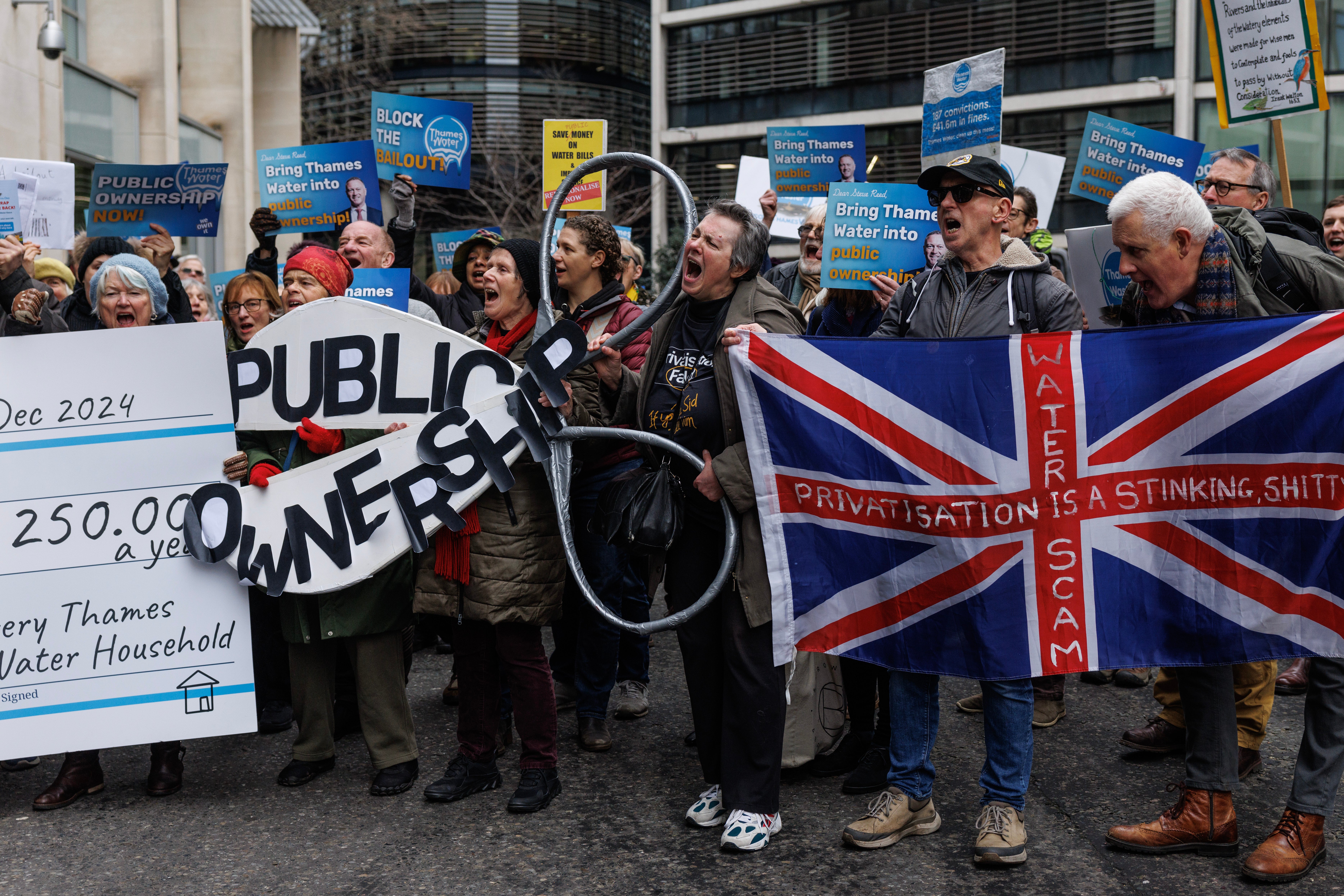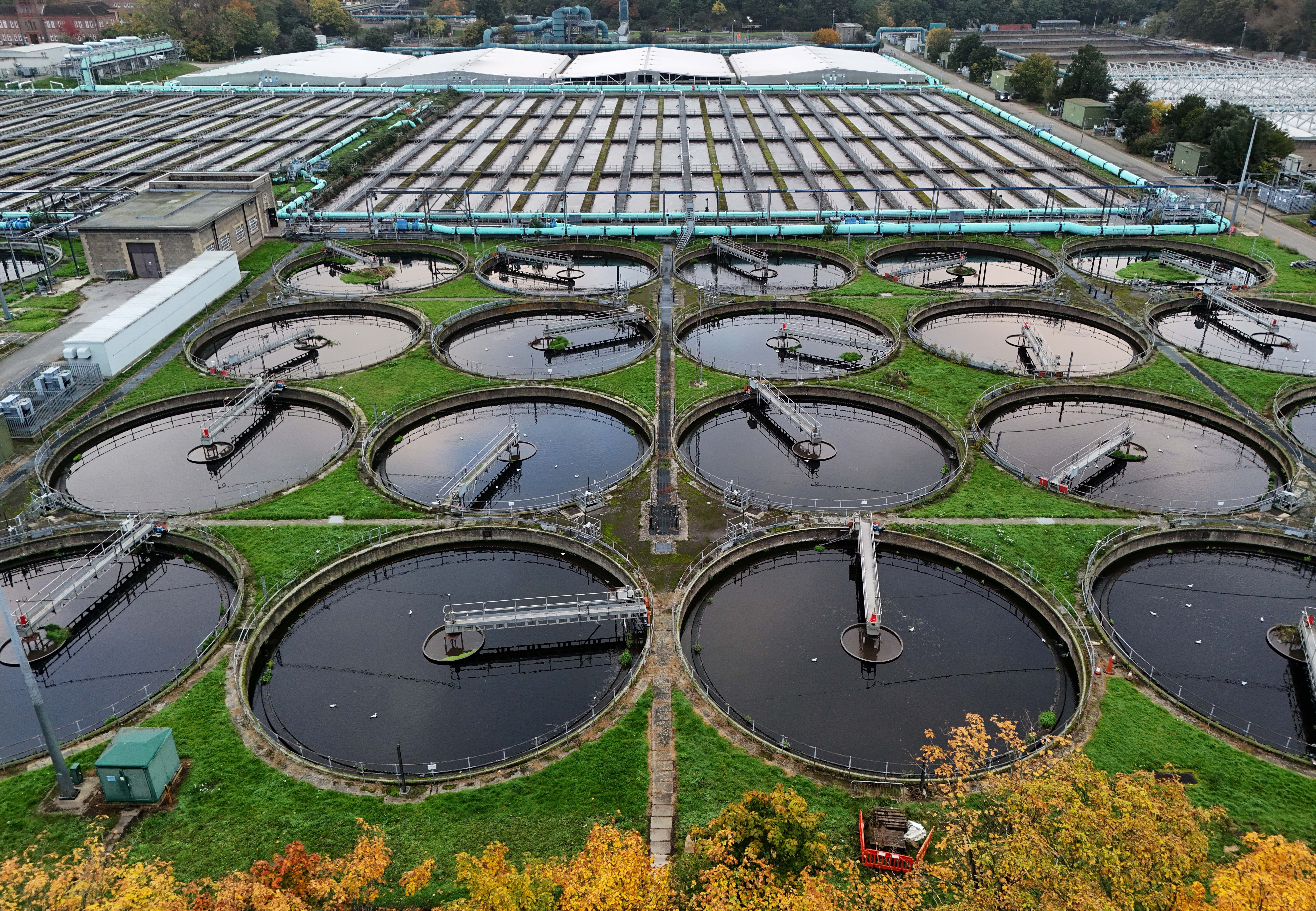Thames Water has won approval to borrow £3bn to prevent imminent collapse in a high-cost loan deal described by a judge as "eye-watering".
The High Court ruled on Tuesday that the firm could press on with a crucial cash injection, even as some of its creditors and a Liberal Democrat MP said they would appeal against the decision. Mr Justice Leech approved the appeal.
Campaigners described the bailout as a scandal for customers and the environment. Thames Water is England's biggest water firm and supplies about 16 million households across London and the South East.
Thames Water Utilities Holdings Limited (TWUH), the parent company of Thames Water Group (TWG), needs £3.3bn over the next five years to keep running as it faces roughly £16bn of debt.
The company has been at the centre of growing public outrage over the extent of pollution, rising bills, high dividends, and executive pay and bonuses.

Earlier this month, Mr Justice Leech heard several days of arguments over whether to approve a restructuring plan, known as the “company plan”, which provides a loan of up to £3bn with a 9.75 per cent interest rate, with a view to enabling operations until next year.
TWUH’s lawyers claimed the company would enter special administration (SAR) if the plan was not approved, but a smaller group of secondary creditors proposed an alternative plan known as the “B plan”, which the court heard would provide the company with the same funding but on better terms and should be adopted instead.
In a judgment on Tuesday, Mr Justice Leech ruled that the “relevant alternative” to the company plan being approved was SAR, and said: “After taking into account the public interest in ensuring the uninterrupted provision of vital public services, I nevertheless exercise my discretion to sanction the plan.”
He added that Thames Water should be allowed to “finish the jigsaw” and find new investors before passing the costs of nationalisation onto the government.
The Liberal Democrats said the restructuring was “throwing good money after bad”, with MP for Witney Charlie Maynard announcing he would appeal the judgment after he gave evidence in court claiming the utility should be put into administration or customers will end up “paying the price”.
Matthew Topham, lead campaigner at campaign group We Own It, said in response: “The privatised company will limp on for a few more months like a profit-thirsty zombie. This crisis loan will keep Thames afloat in the short-term, but their underlying business model is rotten and should be condemned.
“It relies on piling up debt and raising customer bills so they can pay huge bonuses and dividends – all while pumping raw sewage into our waterways. The reason they’re getting bailed out is because they ran out of other people’s money to line their pockets with. It’s only a matter of time before they end up on the edge of bankruptcy again.
“This is the ‘doom loop’ of privatised water and there is only one way to break the cycle – public ownership.”

The company’s finances remain on a knife edge, and last week it asked regulators to allow it to raise customer bills by even more over the next five years than the 35 per cent that had previously been granted.
Although Thames Water said customers will not have to pay for the loan and their bills will be unaffected.
The loan is being provided by a group of Thames Water’s senior creditors, a group of hedge funds, banks and other big investment firms that it already owes about £11.5bn, including Abrdn, M&G, Elliott Management and Invesco.
Another hearing to consider whether the “B plan” can be put to creditors for approval could also be held on Wednesday.
Welcoming the ruling, Chris Weston, chief executive of Thames Water, said: “This is good news for our customers, puts our business on a firmer financial footing, and enables us to continue to invest in our network and deliver critical infrastructure upgrades for our customers and the environment.”
Chair Sir Adrian Montague added: “Critically, it enables the management team to continue progressing the turnaround.”
The High Court heard earlier in February that the restructuring was intended to be an interim measure to keep the company running before a substantive restructuring due later this year.
TWUH provides services through a direct subsidiary, Thames Water Utilities Limited (TWUL), which serves about 16 million customers – about 25 per cent of the UK’s population – and owns more than 20,000 miles of water mains and more than 68,000 miles of sewers across London, the Thames Valley and the home counties.

Tom Smith KC, for TWUH, told the court that letting it run out of money by not approving the company plan was “a risk which cannot be run”.
The company plan, drawn up by a cluster of investment giants including BlackRock, Abrdn and M&G, would effectively guarantee Thames Water can keep operating until 2026 by providing £1.5bn of funding, with a further £1.5bn potentially available.
It would also see payment dates for its debts extended by two years.
The court was told it had been approved by creditors holding more than 75 per cent of its Class A debt, which is worth about £11.5bn and is the least risky class of bonds in its debt pile.
Branding the bailout “reckless”, a “national scandal” and a “disaster”, Charles Watson, chair of River Action, said: “Customers will now bear the brunt of massive interest payments through higher water bills, paying for corporate failure while our rivers remain choked with sewage.”
He called on the government to “take back control of Thames Water and put an end to years of environmental destruction and financial mismanagement”.
A spokesperson for the Environment Department (Defra) said: “The company remains stable and the government is closely monitoring the situation.”
A spokesperson for Thames Water’s senior lenders – which includes finance firms Abrdn, Apollo Global Management, Elliott Investment Management, Invesco and M&G – said the deal will see the company’s debt pile reduced, give it more money to invest in its pipes and sewers, and give “vastly improved outcomes for customers and the environment”.







